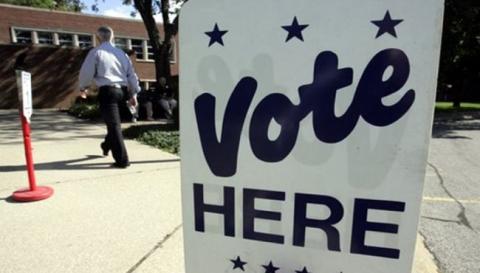In an op-ed for the Bangor Daily News, Ned White rightly points out the future of ranked choice voting (RCV) is once again in the hands of voters. After 52 percent of Maine voters supported the implementation of RCV in 2016, the Maine legislature passed a law to delay the implementation until 2022.
In response, RCV supporters gathered more than 70,000 signatures for a ‘People’s Veto,’ which prevents the delay and places RCV once again on the ballot.
On June 12, voters will be asked if they reject the legislature’s attempt to delay the implementation of RCV on Question 1, the only initiative on the ballot:
“Do you want to reject the parts of a new law that would delay the use of ranked-choice voting in the election of candidates for any state or federal office until 2022, and then retain the method only if the constitution is amended by December 1, 2021, to allow ranked-choice voting for candidates in state elections?”
The question is worded this way because it has to specifically address the law passed by the legislature to delay the reform. Additionally, the measure addresses the potential use of RCV for state elections if the state constitution is amended. Currently, the state constitution says candidates for governor, state senator, and state legislature can win by plurality, not majority.
That has been a touchy subject for Maine voters, considering there has not been a majority winner in nine of the last 11 races for governor, including both times the controversial Paul LePage won the office, with 48.2 percent in a 3-way race in 2014 and only 37.6 percent in a 4-way race in 2010.
White explains what a “yes” vote on Question 1 will mean:
RCV will continue to apply to party primaries (Republican, Democrat, Green) for U.S. Senate, U.S. House, State Senate, State House, and Governor
RCV will not apply to general elections for Governor, State Senator, and State Representative until/unless the constitution is amended to dump the “plurality” language
RCV will apply (for the first time ever) to general elections for U.S. Senate and U.S. House
A sample ballot is included in the piece, which the author says he likes, calling it “clean and simple.”

Ultimately, White lists the reasons to vote yes on the measure:
- Gives you more voice in an election
- Gets rid of voting for “the lesser of two evils”
- Eliminates the possibility of “spoiler” candidates
- Promotes more positive campaigning
This June, Maine voters have a chance to make their elections better for everyone.
Editor's note: This piece originally published on FairVote's blog and has been modified slightly for publication on IVN.
